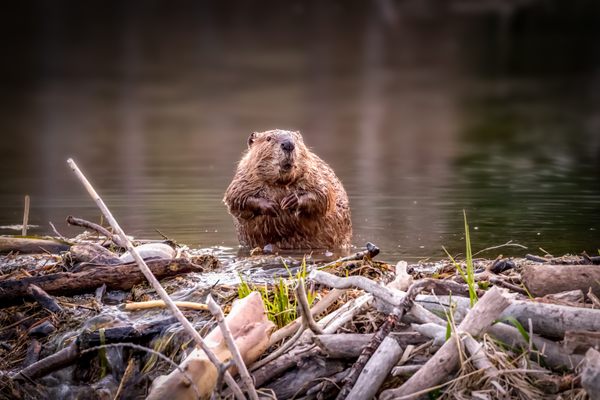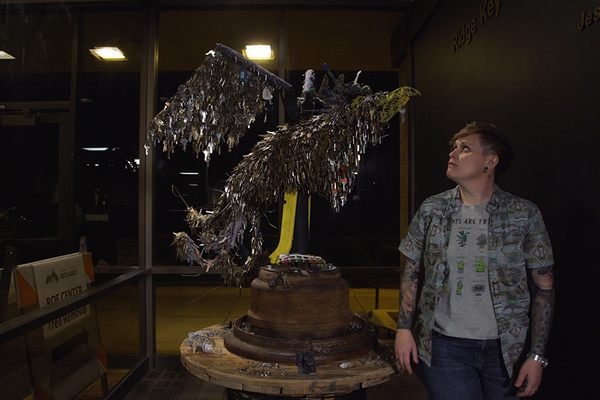To Discourage Rodents From Eating Seeds, Scientists Are Getting Spicy
A ghost pepper–based coating could help ecosystems recover from wildfires.

Has your home garden ever been gutted by rodents? Maybe your seeds just weren’t spicy enough.
New research suggests that capsaicin—the spicy part of chili peppers—can be a robust deterrent to seed-eating rodents. Ecologists interested in restoring ecosystems after disturbances such as wildfires conducted experiments with deer mice. They started with glass enclosures where on one side, the mice were offered regular old sunflower seeds, while on the other side were seeds that had been given a special, capsaicin-laced coating. The mice ate 86 percent fewer pepper-treated seeds than untreated ones. When they took the experiment outside to the Missoula Valley in Montana, the scientists saw the results play out. Seeds that were treated with capsaicin were far more likely to survive to become plants than ones left untreated, the team recently reported in the journal Restoration Ecology.

This seems like a pretty intuitive outcome—if we can’t take the heat, why would mice?—but getting to this point wasn’t as easy as it seems. Researchers were using capsaicin from bhut jolokia, the Indian “ghost pepper,” which, with over a million Scoville Heat Units, once held the record for world’s hottest pepper. It was plenty hot, but the team struggled for years to develop a binding gentle enough not to harm the seed, and strong enough to endure the elements. Even the latest, strongest coating can’t survive the whole winter, so the team will continue to refine it.
Matthew D. Madsen, an ecologist at Brigham Young University who helped develop the new coating mechanism, explained why the innovation is important. Invasive weeds and increasingly frequent wildfires have made it hard for native plants to survive to restore ecosystems. The plants need a “boost,” he said, and one way to do that might be to help them defend themselves against rodents. Invasive weeds can burn more easily than native plants, so successfully recruiting more native species to an ecosystem can be crucial to managing future wildfires.
This could be a good strategy to help support recovering ecosystems—so long as pepper-loving Chinese tree shrews don’t come calling.
Gastro Obscura covers the world’s most wondrous food and drink.
Sign up for our email, delivered twice a week.




















Follow us on Twitter to get the latest on the world's hidden wonders.
Like us on Facebook to get the latest on the world's hidden wonders.
Follow us on Twitter Like us on Facebook